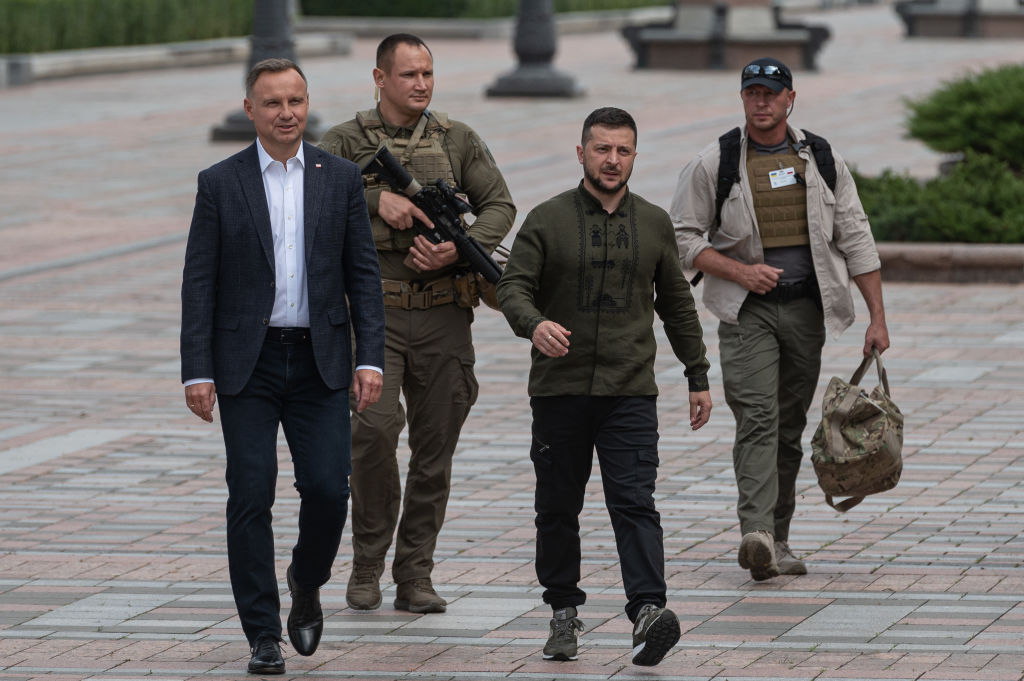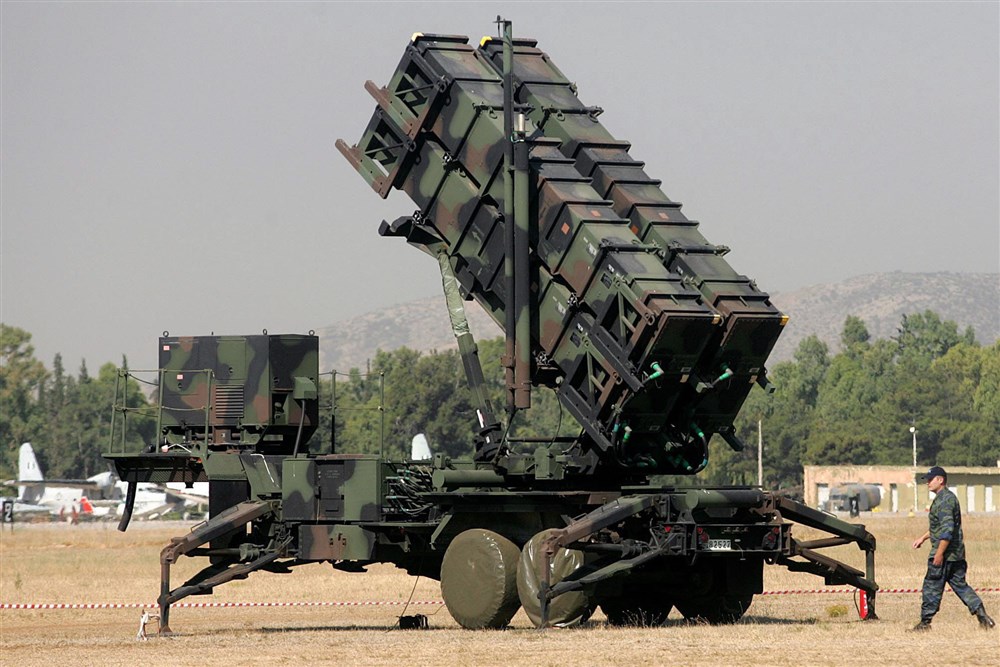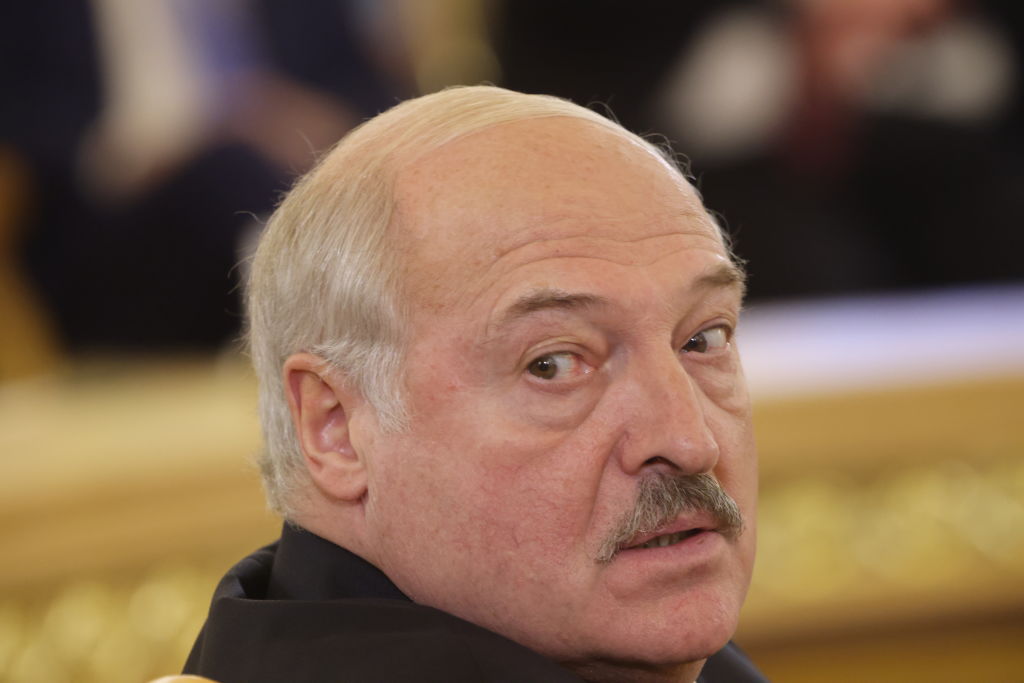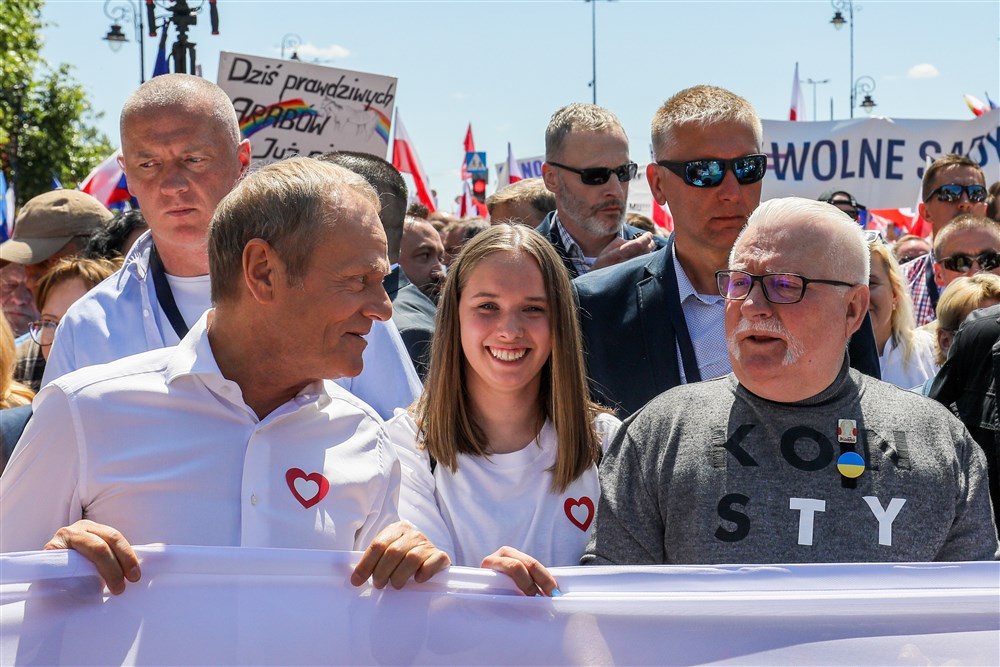Poland said if a peace agreement is negotiated between Ukraine and Russia it would be prepared to help ensure its success by sending peace-keeping troops to Ukraine, thereby signalling its intention to remain a primary supporter of Kyiv.
Ahead of the major NATO summit in Vilnius, Lithuania on July 11 and 12, Polish President Andrzej Duda told German media outlet Bild that his country did not rule out sending troops to Ukraine as part of a NATO mission taking place after a negotiated armistice.
However, he said he understood German concerns that immediate NATO membership for Ukraine would effectively mean the alliance and its signatories would also be at war with Russia.
But he added: “If Ukraine decides to enter into negotiations with Russia and a decision is taken for peace missions to be stationed to ensure the armistice is respected, Poland, as a responsible member of NATO, would take part.”
His remarks are seen as a sign that Poland will not shift position as one of Ukraine’s most important allies in the war. Poland has been used as a hub for arms supplies to Ukraine and it has sent tanks and fighter planes to the country.
Duda has been pressing hard within both the European Union and NATO for maximum support for Ukraine joining both alliances as soon as possible.
That is why, observers say, Poland was disappointed that in the run-up to this week’s NATO summit the US appeared to take far more notice of the views of Britain, Germany and France than those of Poland, the country with by far the largest military force on the eastern flank of NATO.
It was the US, with Germany, France and Britain, that negotiated directly with Kyiv on the thorny issue of future NATO membership for Ukraine and guarantees for Ukraine’s security.
To many, it seems that, having got what it wanted from Poland, Ukraine is also now more interested in its relations with the most powerful NATO members.
For Poland there may be a sense of deja-vu. In 2014, despite active involvement in the EU securing a deal that ended the Russian conflict in the Donbas region of Ukraine, Poland was not involved in the Minsk peace initiative forged by France, Germany, Ukraine and Russia. Poland was excluded because Russia would not accept its presence at the negotiating table.
The Poles have also had to swallow the fact that there is no NATO unity on offering Ukraine speedy accession. It has, therefore, concentrated on pressing for the strengthening of NATO’s eastern flank in reaction to the presence of Russian nuclear weapons in Belarus and the expected stationing of the Russian-backed mercenary Wagner Group’s forces there.
Duda told Polish media those developments had “changed the security architecture in this part of Europe” and that this should spur NATO to review its policies on the stationing of nuclear weapons in the region.
Speaking to reporters after the last EU summit on June 30, Polish Prime Minister Mateusz Morawiecki indicated the country’s intention to join NATO’s nuclear-sharing programme, whereby US-controlled nuclear weapons would be stationed in Poland.
He argued that was necessary in response to threats being made by both Russia and Belarus.
However, the presence of NATO nuclear forces on Polish territory is not something Washington has been willing to entertain thus far.





